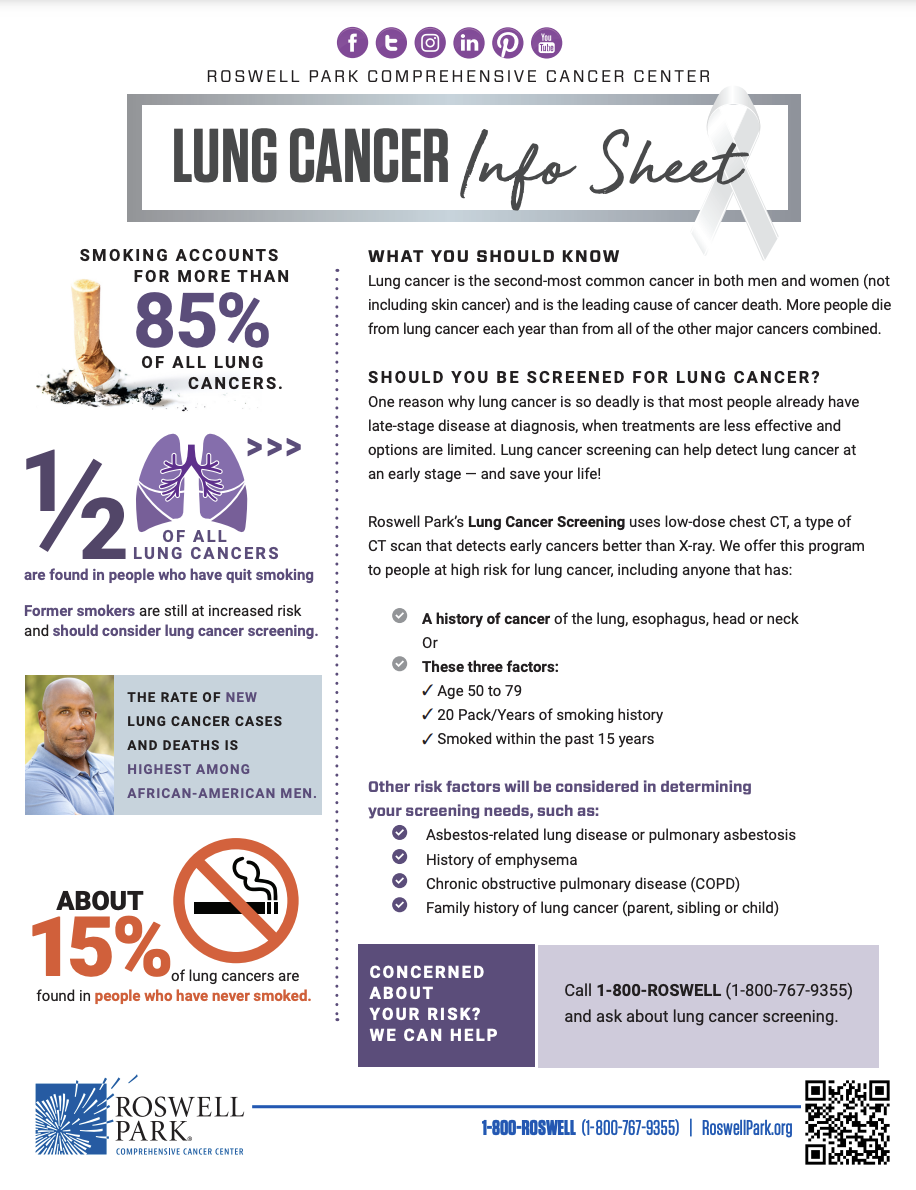Your lungs are two spongy organs located in your chest that are responsible for your breathing. Their primary function is to take oxygen from the air that you inhale, transfer the oxygen to your bloodstream and exchange it for carbon dioxide, and release the carbon dioxide as you exhale.
Each of your lungs has sections called lobes. Your right lung has three lobes and your left lung, which shares space with your heart, is slightly smaller with two lobes. A thin membrane called the pleura surrounds the lungs. When you inhale, air moves through your trachea (windpipe) branching into two tubes called bronchi, leading to each lung. From the bronchi, air moves into the lungs through many smaller tubes called bronchioles and to the tiny air sacs called aveoli.
Lung cancer can develop in any part of the lung, and grow and spread to lymph nodes and other organs.
Not all cancer found in the lungs is lung cancer. A tumor in the lung could be a cancer that originated in another part of the body (such as the breast or bladder) and has metastasized (spread) to the lungs. In this case, it would be metastatic breast cancer or metastatic bladder cancer, not lung cancer, and would be treated like the primary tumor.

